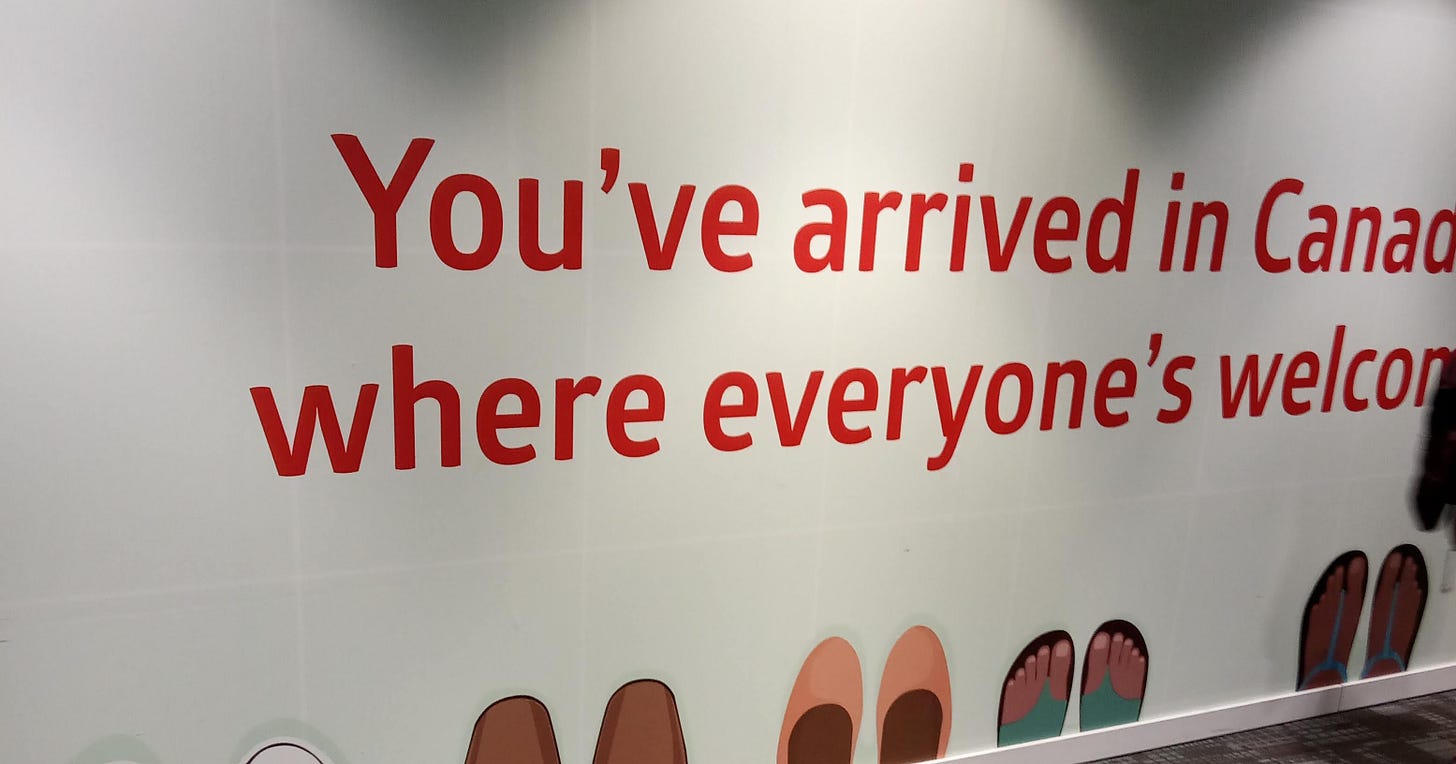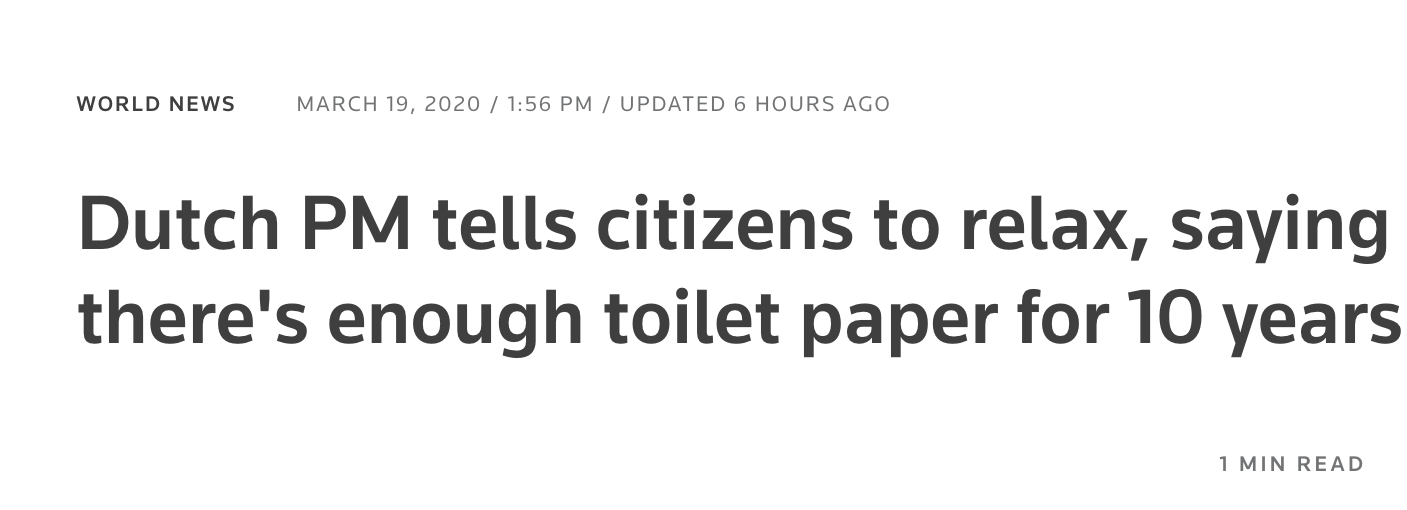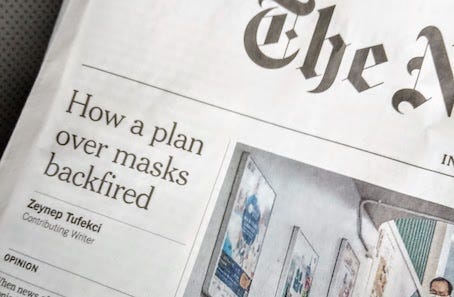#5: Hamsters
Disclaimer: This largely speculative newsletter is not fact-checked. If you notice any errors, let me know. Welcome to Quarantine Chic, a newsletter about the culture of Coronavirus. Subscribe here.
I’ve spent the past four days traveling back and forth to the US—a trip that’s been marketed as impossible or difficult. In fact, it’s not only possible, but the tough travel restrictions we keep hearing about aren’t as tough in person. The Boston “health screening” was a 10-second interview, and no quarantine orders were issued. Then yesterday I traveled through Canada, which also has a travel ban, and was waved through without scrutiny:

What to say, now that the entire media, and really every person, talks about nothing but Coronavirus? Critique is one thing we can do—but let me know what you’d like to hear about.
This time, let’s talk about hoarding. In Germany, they call it hamstern—evoking a hamster stuffing its cheeks with food, like this:

So the run on stores is called the Hamsterkauf. This is something, again, media and politicians have been extremely critical of. People laugh off those who buy toilet paper or buy multiple weeks of supplies.
But 2 weeks of supplies—including toilet paper—is a completely mainstream disaster preparedness recommendation. If you’re stuck at home or sick, running out of toilet paper would be a major inconvenience indeed. So buying these things is a completely rational decision, but it does stress grocery stores and the “just-in-time” supply chain. So we resort to shaming—un-relaxing calls to “relax.”

And is mild hoarding really so selfish? It means you go out to stores less often, leading to less crowding. It means that when you’re sick, you can actually self-isolate. Also, just because you bought 5 bags of rice doesn’t mean you won’t give two to your neighbors if they need it.
I think we can forgive people who, hearing constantly about mask, ventilator, ICU bed, and virus test shortages, don’t have a lot of faith in the continued resiliency of overly-complex supply chains. If life-saving essentials like masks are mysteriously unavailable and governments seem to have no capacity to quickly improve the situation, why should anyone trust that toilet paper or their favorite pasta will be around a month from now? These worries are legitimate—even the Times is telling us to expect “shortages of products.” The hoarding may be disruptive, but the worries are legitimate.
The glib dismissal of “hoarders” and the injunction not to hoard recalls, in a big way, the “masks don’t work” narrative I talked about a few newsletters back. What they share is an internal contradiction that’s easy to see through. “Masks don’t work but doctors desperately need them” sounds about as convincing as “there’s no supply shortage but please stop hoarding right now.”
In each case, regular people trying to find security in an unprecedented situation are scapegoated as hysterical, selfish, or comical. For a certain layer of society, moral panic remains preferable to existential panic.
Interesting links:
This week the Times ran an op-ed against the “masks don’t work” narrative that makes good points and echoes newsletter #2:

This is a helpful PowerPoint summarizing everything people think they know about Covid-19. (I deliberately did not write “everything we know”—why would I include myself? This bizarre habit of journalists to say “we know” when they mean “scientists believe” needs to come to an end. Why are journalists casting themselves as the stenographic press secretaries to ‘Science’?)
The New York Times Style section does its take on masks as a cultural phenomenon. It’s a little dry and superficial, but has interesting information.
Against quarantine productivity—predictable but useful case against the pressure to produce in isolation. “This mindset is the natural endpoint of America’s hustle culture—the idea that every nanosecond of our lives must be commodified and pointed toward profit and self-improvement.” Here’s a more funny takedown of the same discourse.
Predictable, some employers are using the shift to “work from home” to rationalize and regiment the work process even more. I.e., if you don’t have to go to meetings, you should be getting more done! This particular article talks about this ongoing pressure in finance.

